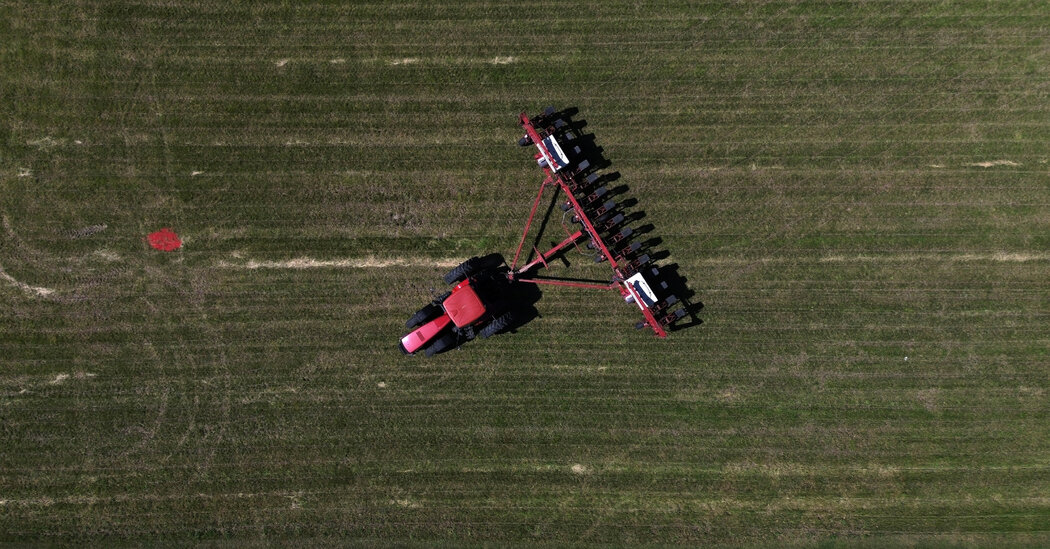Here is the result in plain text:
After China unveiled steep retaliatory tariffs on American exports on Wednesday, Treasury Secretary Scott Bessent issued a sharp and somewhat surprising response: “So what?”
The question underscored the Trump administration’s argument that America has the upper hand in a trade war with China given how reliant its economy is on exports to the United States.
The United States buys far more goods from China than China buys from the United States.
“American companies that have been selling to China, and have been enormously successful doing that, are not going to be able to do that because of Chinese retaliation,” Sean Stein, the president of the U.S.-China Business Council, said in the hours before Mr. Trump ratcheted up his tariffs again.
“Tariffs on the Chinese side and the U.S. side cover everything,” Mr. Stein added, meaning everything from aviation to medical imaging to agriculture would be affected and “trade is going to slow,” he said.
The United States exported $143.5 billion of goods to China last year and imported $438.9 billion from that country, according to the Office of the United States Trade Representative.
The loss of China as an export market will deal a particularly hard economic blow to agricultural workers in many red states, hitting many of the voters who helped Mr. Trump win the presidential election.
Mr. Trump handed out $23 billion in subsidies from a fund that the Department of Agriculture created to stabilize the farm sector.
The soybean industry is one of the sectors most concerned about the current tariff retaliation. China is America’s largest soybean export market, but when Mr. Trump imposed tariffs on Chinese goods during his first term, Beijing retaliated by buying soybeans from other countries, including Brazil.
“If this lasts long term, we’re going to have a significant number of farmers going out of business,” said Caleb Ragland, a Kentucky farmer who is president of the American Soybean Association. “We still bear scars from the last trade war.”
U.S. corn farmers, who sell about 2 percent of their products to China, have also been on edge about the trade fight.
Anxiety over the impact of the tariffs was evident on Wednesday as Jamieson Greer, the U.S. trade representative, testified before the House Ways and Means Committee and faced questions from Republicans who were nervous about retaliation from other countries against U.S. farm exports.
Mr. Bessent downplayed the impact of China’s response on Wednesday morning, arguing on the Fox Business Network that the United States exports relatively little to China.
The retaliation could force the Trump administration to revive the bailouts to American farmers that were offered during the president’s first term.
At a White House cabinet meeting on Thursday, Ms. Rollins noted that farmers and ranchers had been struggling because of inflation and were concerned about uncertainty over trade but that they supported Mr. Trump’s economic agenda.
Mr. Trump offered little clarity on Thursday about a truce with China, but the president expressed general optimism about the economic relationship.
Farmers generally resist government handouts, but Mr. Ragland of the American Soybean Association said federal relief might be necessary in this case.
If we continue to be used as a negotiating tool, and we’re going to be a sacrificial lamb on behalf of the bigger picture, we’re going to have to have an economic package to help us keep the lights on, he said.
Tony Romm contributed reporting
Source link




